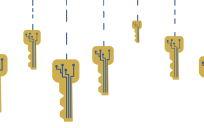In today’s world of constant cyberthreats from terrorism, hackers and viruses, public and private sector organizations need to assemble a strong, experienced team of security experts. These individuals ensure that organizations are protected — on a minute-by-minute basis — from both internal and external threats to their infrastructure.
But finding a talented and trained staff becomes a problem when, according to a June 2019 Forbes article, there are nearly three million open positions for security professionals.
The SolarWinds Federal Cybersecurity Survey found that insider threats continue to plague federal agencies, in large part due to the lack of skilled IT and security staff with expertise in evolving and cutting edge technologies.
The 2019 report found 56% of the surveyed federal government IT leaders consider careless or untrained insiders as the most significant threat to their organizations. Fifty-two percent said foreign governments are the primary menace to their agencies.
To help address the shortage of experienced professionals in the public sector, the U.S. Army, ten other government agencies, Mastercard, Microsoft, Workday, and the Partnership for Public Service have started the Cyber Talent Initiative to entice new graduates to start a career in the public sector.
“Participants first serve in the federal government for two years, then will be invited to apply for select positions with some of the world’s most innovative private sector companies,” according to the program’s website. “If selected for private sector employment, participants will receive up to $75,000, inclusive of tax, in student loan assistance.”
In reality, organizations today face the immediate need to hire and train a team of experts knowledgeable in the latest technologies and solutions to protect their infrastructure from attack.
So what type of experts should be on your security/IT staff?
Database Administrators
The role of the database administrator is more complex than ever as databases are migrating to cloud-based environments needing to be properly secured and encrypted.
In today’s data-driven world, it’s critical for public sector organizations to hire individuals who not only understand how to properly maintain and optimize a database — to ensure the end-user experience isn’t hindered — but also someone who understands how to properly secure a database.
For example, if an agency like the Internal Revenue Service is building an in-house application or website leveraging a database, the administrator must ensure the database is functioning properly, it’s working at optimal performance levels, and personal data is properly stored and encrypted.
Cloud Computing Engineers
Each year, major players such as Google, Amazon and Microsoft launch new cloud services and applications. While these new technologies can help improve the end-user experience and speed up organizational efficiencies, the potential for bad actors to exploit cloud environments has increased exponentially.
Typically, in an internal environment, agencies can ensure their data is secure if their database is locked down. With the cloud, it’s another matter entirely as the potential attack area is larger. Daily innovation in the cloud space also makes it next to impossible to find experienced professionals trained in the latest cloud technologies and services.
As a result, government IT leaders not only need to identify experienced cybersecurity professionals with cloud expertise, but also to find technology solutions to help identify areas of insecurity.
Cybersecurity Experts
Most importantly, agencies need to have experienced cybersecurity engineers dedicated to fighting the minute-by-minute threats to an organization’s infrastructure.
Each day, an organization’s cybersecurity professionals should be managing not only their daily duties — such as protecting firewalls from intrusions — but also working closely with their agency’s database administrators, cloud computing engineers, and other IT/security professionals to ensure the rollout of new technologies doesn’t leave the digital infrastructure open to exploitation.
Understanding the Dangers to Your Cybersecurity
Faced with changing technologies, daily cyberthreats and a shortage of skilled IT/security experts, public sector organizations need to assemble and properly train an experienced team of database administrators, cloud computing engineers and cybersecurity experts to protect their infrastructure from internal and external threats.
Brandon Shopp is the vice president of product strategy and security at SolarWinds, a leading provider of IT infrastructure management software.





Leave a Reply
You must be logged in to post a comment.